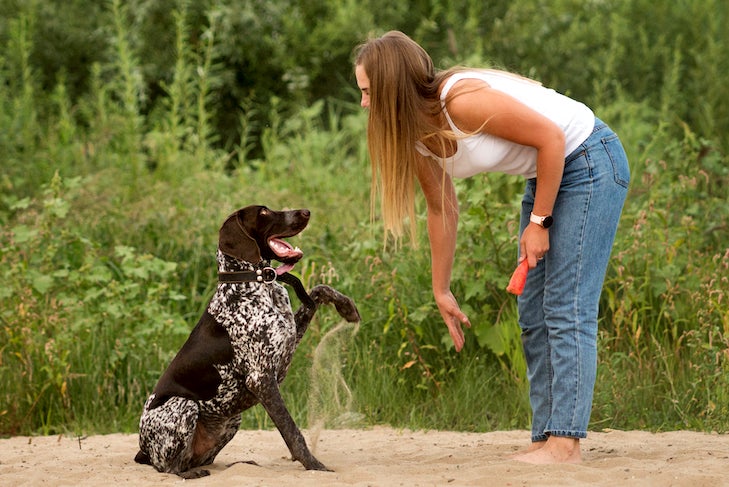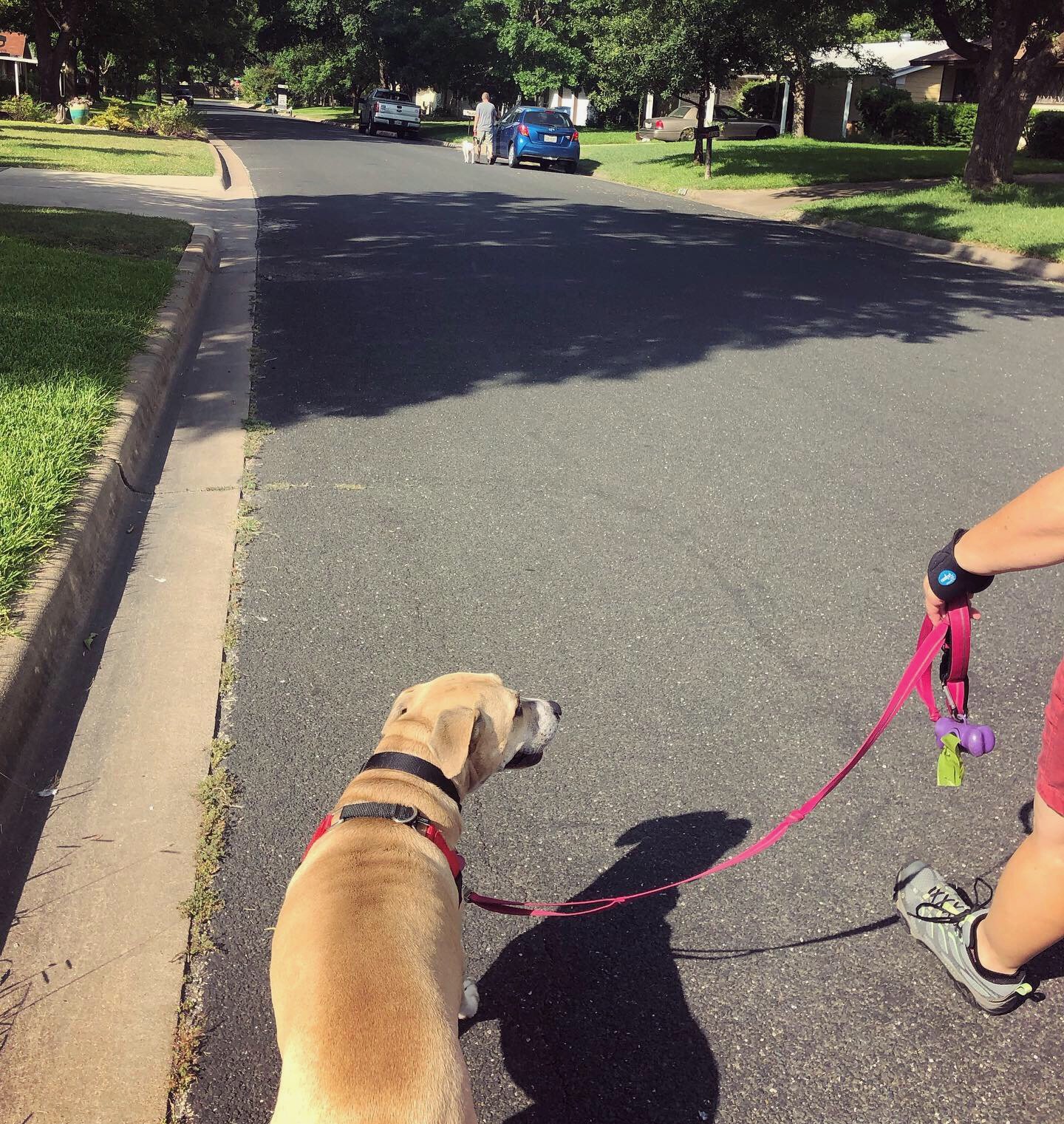The Ultimate Guide to Dog Training Charlotte: Methods for Success
The Ultimate Guide to Dog Training Charlotte: Methods for Success
Blog Article
Unlock Your Pet's Possible: Proven Pet Dog Training Techniques for Success
Efficient canine training is a nuanced procedure that pivots on recognizing canine habits and utilizing scientifically backed strategies. Dog training. By including favorable support, developing clear commands, and prioritizing socialization, canine proprietors can grow a productive connection with their pets. Challenges usually develop that call for tailored services and a client technique. Checking out these confirmed techniques reveals not only the capacity for behavioral renovation but additionally the much deeper bond that can be created in between owner and canine. What important strategies must be thought about to absolutely open your canine's capacity?
Understanding Dog Habits
Comprehending pet habits is essential for effective training and promoting a positive relationship in between canines and their owners. An extensive grasp of canine body language, vocalizations, and social interactions is essential for identifying their emotions and requirements. Canines interact mostly with non-verbal cues; for instance, a wagging tail might indicate exhilaration, while pinned ears can signify anxiety or entry.

Moreover, ecological elements play a substantial duty fit a pet's behavior. Modifications in regular, new environments, or the existence of strange people can cause anxiety or stress and anxiety in dogs. Acknowledging these triggers allows proprietors to reduce unfavorable responses and develop ideal training techniques.
Inevitably, a deep understanding of dog behavior lays the foundation for successful training techniques, improving both habits and the general bond in between the pet dog and its owner. dog training charlotte. This understanding is vital for cultivating a well-adjusted, happy canine companion
Favorable Reinforcement Strategies
Effective training depends heavily on favorable reinforcement strategies, which have been revealed to produce substantial lead to shaping preferred actions in canines. This technique involves compensating a dog for exhibiting details actions, thereby boosting the chance that these behaviors will be repeated. Benefits can take various types, including deals with, appreciation, toys, or play, depending upon what inspires the individual pet dog.

It is necessary to slowly eliminate benefits as the pet finds out the habits, transitioning to intermittent reinforcement. This approach maintains the habits gradually while protecting against reliance on consistent rewards. By concentrating on favorable support, trainers can grow a trusting partnership with their pets, advertising a cooperative and healthy training setting that improves general obedience and performance.
Establishing Constant Commands
An essential element of effective pet dog training is the establishment of straight from the source regular commands. Uniformity in commands is important for reliable communication between the instructor and the pet. When commands are consistent, canines learn to link particular words with preferred actions, which speeds up the training process and enhances understanding.
To establish regular commands, it is necessary that all family members utilize the same terminology and motions. If one person utilizes "sit" while an additional states "rest down," it can create confusion for the pet. Select clear, unique words for commands and make sure everybody associated with the canine's training complies with these choices.
Furthermore, repeating is essential. Enhance commands with frequent practice, ensuring that the pet receives enough opportunities to respond correctly. When a pet dog effectively adheres to a command, instant favorable support must follow. This can be in the type of deals with, praise, or playtime, solidifying the connection in between the command and the action.
Lastly, hold your horses. Developing regular commands takes time and initiative. With devotion and quality, you will certainly assist your dog develop a solid understanding of assumptions, eventually causing a mannerly buddy.
Socialization and Direct Exposure
Mingling a pet dog is necessary for promoting a well-adjusted and confident friend. This process involves revealing your pet dog to a variety of settings, individuals, and other pets to establish their social skills and flexibility. Early socialization, preferably between the ages of three to fourteen weeks, is essential, as it prepares for a pet dog's future behavior.
Throughout socialization, aim to supply positive experiences in various setups, such as parks, busy roads, and homes with other pet dogs. Introduce your dog to different stimuli, consisting of sounds, views, and scents, guaranteeing that each experience is satisfying. This direct exposure assists alleviate worry and anxiousness, leading the means for a much more resistant canine.
Engaging in controlled team play sessions with various other pets can also boost social skills, showing your pet dog ideal interactions and boundaries. Prioritizing socialization will considerably contribute to your pet dog's general joy and habits throughout their life.
Conquering Common Educating Difficulties

Another constant issue is disturbance. Pet dogs might have a hard time to concentrate in unknown or active settings. Progressively desensitize your canine to distractions by beginning training in a silent atmosphere and gradually introducing more stimulations as they end up being proficient (dog training charlotte nc). Positive reinforcement strategies, such as deals with and praise, can keep inspiration and focus.
Additionally, behavioral problems like leaping or too much barking can become discouraging. Address these training your own service dog by educating alternative behaviors, such as sitting comfortably when welcoming visitors. Uniformity and perseverance are essential; strengthen preferred habits constantly and stay clear of abuse, which can lead to confusion.
Finally, identify that each pet is unique, and training timelines might differ. Dressmaker your strategy to your dog's individual needs, and look for specialist guidance if needed. With willpower and the appropriate approaches, getting over these obstacles can bring about a trained, delighted canine buddy.
Final Thought
To conclude, unlocking a dog's possible demands a detailed technique that integrates an understanding of canine habits, the application of positive support strategies, and the establishment of consistent commands. Early socialization and direct exposure to varied environments further boost a pet dog's flexibility and confidence. By dealing with common training obstacles with tailored strategies and perseverance, a participating and unified relationship in between canine and handler can be cultivated, ultimately resulting in a mannerly companion qualified of prospering in various scenarios.
Effective pet training is a nuanced process that hinges on comprehending canine behavior and using scientifically backed approaches.Comprehending dog habits is vital for effective training and promoting a favorable connection in between canines and their proprietors.Effective training counts heavily on positive support methods, which have been revealed to generate significant outcomes in forming preferred behaviors in dogs. When commands are consistent, pets discover to link specific words with preferred actions, which accelerates the training procedure and boosts understanding.
In conclusion, opening a pet's potential requires a comprehensive technique that includes an understanding look at these guys of canine behavior, the application of positive support strategies, and the establishment of constant commands.
Report this page